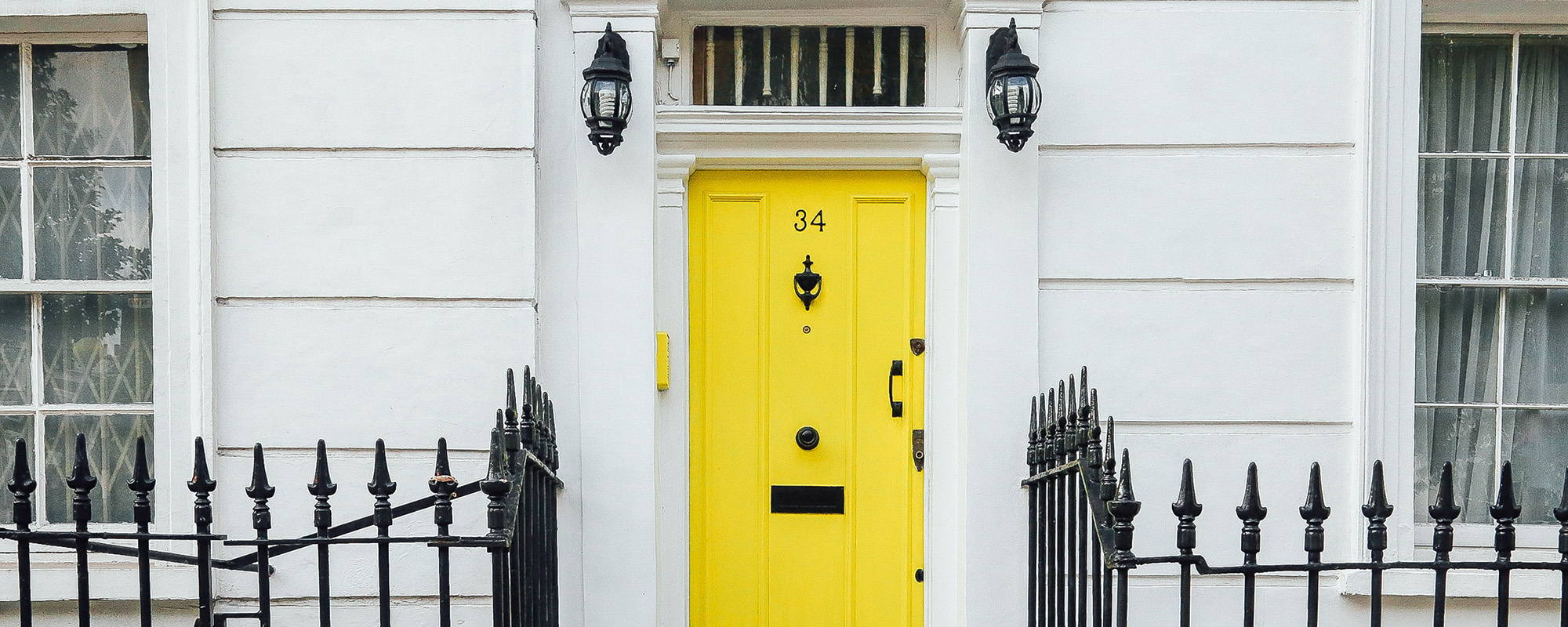FREE Guarantor Mortgage Advice
“We know that time is precious for you, we can work around your availability while searching for the most competitive mortgage products and overseeing your mortgage application from start to finish”.
Jonathan Smith – (CeMAP, BA Hons, Aff SWW, CeRER)
There are a lot of hurdles to overcome when you’re trying to secure a mortgage. These include saving an adequate deposit and passing the lender’s affordability checks. This can sometimes make it seem like an impossible task to be accepted by a lender so that you can buy a property. A guarantor mortgage, however, may be a good solution for the issues you’ve encountered.
What is a guarantor mortgage?
This type of mortgage involves a parent, relative or possibly a close friend agreeing to act as a guarantor for your mortgage. This means they are legally responsible for making your repayments if you are unable to. Your guarantor won’t be named on the deeds or have any rights over your property. They will, however, have to sign a legal agreement to cover your repayments. They will also need to provide the lender with some form of security.
Why use a guarantor mortgage?
High property prices, hefty deposit requirements and lenders’ strict affordability checks can all hamper your ability to get a mortgage. With a guarantor, you can overcome the obstacles in your way, such as having a low income, no deposit or a bad credit rating.
Also known as a family assisted mortgage, it is especially popular with first-time buyers. It can be the difference between them getting their foot on the property ladder or not being able to buy their first home. It can also suit those who’ve previously had a joint mortgage but have now separated and don’t meet the affordability criteria for a mortgage on their own. There are many reasons why a guarantor mortgage may be beneficial for you:
- You are struggling to save a deposit. In some cases, you can get a mortgage for up to 100% of a property’s value. This means you don’t have to wait until you have saved a deposit to be able to buy your home.
- You have a low income. Lenders assess how much you can borrow based on your income, which is restricting if you have low earnings. This means you may not earn enough to be able to afford the property you want to buy. By including your guarantor’s income, however, a lender may agree to give you a higher loan amount.
- You have a low credit score or no credit history at all. Lenders check your credit score as part of their assessment. It may be that you haven’t been able to build up a good credit score, if any, which puts you at an immediate disadvantage. This can happen if you’ve never used a credit card, for example. Your guarantor must have a good credit rating so this will make a lender feel more comfortable offering you a mortgage deal.
- You have a bad credit score. As your guarantor has to have a strong credit score, a lender will be more inclined to agree to a loan than if you were to apply for a mortgage on your own.
- You want to purchase a property that’s out of your price range. You may have no problem securing a mortgage on your own but wish to buy a property with a higher price than you can afford. Taking your guarantor’s income into account for the affordability criteria, however, may make the lender more willing to increase the loan amount.
Just be aware that the less deposit you have, the higher the interest rate will be. This will not only make your monthly repayments higher but will cost you more across your mortgage term. Another concern to be aware of with a high loan-to-value mortgage, such as 95% or 100%, is that you risk going into negative equity if the value of your property drops in the future. This means the amount you owe for your mortgage may be more than your property is worth.
At Trinity Finance, we can ascertain how much you can potentially borrow. This helps to determine whether a guarantor mortgage is the right choice for your circumstances. Our mortgage specialists, located throughout Kent, London and Edinburgh, know which lenders offer guarantor mortgages and can search for the best deal for you. For more information on this type of mortgage and alternative options, get in touch with us on 01322 907 000. Alternatively, send us an email at info@trinityfinance.co.uk. We ensure you receive impartial advice and professional guidance on mortgage products that specifically cater to your situation and needs.


Who can stand as your guarantor?
A family member or close friend can usually act as your guarantor although some lenders have restrictions. For example, they may only accept a parent or grandparent to fulfil this role. Your guarantor must either be a homeowner or have adequate savings to satisfy the lender’s requirements. Their income needs to be high enough to cover your mortgage repayments as well as theirs. They must also have a strong credit rating.
A retired guarantor
As the person you’ve asked to be your guarantor has to provide a property or savings as security, they should still be able to act as your guarantor even if they are retired. Different lenders have their own policies, though, so check this with your mortgage broker first.
Your guarantor’s liability
Your guarantor has to provide a form of security to the lender in case you default on your mortgage. This can be their own property and the lender will place a charge on it. Another option is to use their savings. They can pay a lump sum into a special savings account held by the lender. The amount required is usually between 5% and 20% of the new property’s value. This is held for a certain number of years or until you have paid off a specified amount of the mortgage. Your guarantor won’t be able to access their savings during this period. However, they will usually earn interest on the amount held in the account.
As long as you keep up with your mortgage repayments, your guarantor won’t be affected. If you fail to maintain the repayments, though, your guarantor will be liable to pay them. There is a risk that your guarantor may lose their property or savings if you default on your mortgage. Because of this, some lenders insist that prospective guarantors take legal advice before proceeding.
What happens if you fail to make your repayments?
If you miss your mortgage repayments, you may initially be given extra time by the lender to pay what is owed. Alternatively, you may be charged a fee or the lender may ask your guarantor to make the payments instead. Should the situation escalate, you may reach the point where the lender has to repossess your home. If it is sold but a lower price is achieved than the amount you still owe for your mortgage, your guarantor may then lose their home. If your guarantor used savings as security, the lender may hold the savings for longer. Should your home be repossessed and the amount it is sold for is lower than the amount still owed for the mortgage, the lender may recoup the balance from your guarantor’s savings.
What happens if your guarantor dies?
In the event of your guarantor’s death, what happens next depends on your lender’s policies. Some lenders will require a new guarantor to be added to the mortgage. Other lenders will allow you to use your guarantor’s estate to repay some of your mortgage.
Releasing your guarantor from their obligation
This type of mortgage is a long-term commitment for your guarantor. However, they can eventually be released from their obligation by the lender. Once you’ve built up enough equity in your property, for example, your lender may alter the terms of your mortgage so that your guarantor is no longer bound by them. Usually, this can happen when you’ve reduced the amount owed to a certain level, such as under 80% of the property’s value. Another reason the lender may be willing to review the terms of your mortgage and release your guarantor is if your financial circumstances have changed for the better.
Get on the property ladder with a guarantor mortgage
A guarantor mortgage is a good way to overcome many barriers that stand in the way of you and the property you want to buy. For your guarantor, though, it’s a huge commitment and a serious risk to their home or savings in a worst-case scenario. It’s important to get expert advice from your mortgage broker in Kent, London or Edinburgh before proceeding with this mortgage. They can check your financial position and advise you on any alternative options that may be available.
If you have a small deposit rather than no deposit, for example, there are various government-backed schemes that you can take advantage of. These include the First Homes scheme, the 95% mortgage guarantee scheme and the Help to Buy shared ownership and equity loan schemes. You can also try boosting your deposit to benefit from more mortgage deals and better interest rates. You may be lucky enough to receive a gifted deposit from a parent or close relative. Alternatively, they may prefer to release some equity in their property to give you the funds needed for a deposit. They may find this preferable to being a guarantor.
Whatever your preferences, we’re here to help and will find you the best mortgage solution. Call us on 01322 907 000 to discuss the various choices available with one of our friendly mortgage consultants. That way, you can weigh up the pros and cons of each option, choosing the best one for your needs and circumstances. When you’re happy to proceed, our qualified mortgage brokers can search for the best mortgage deals for you, benefitting from unrestricted access to the market. If it’s out of office hours, send us an enquiry at info@trinityfinance.co.uk or via our contact form. We will reply to you with more information as quickly as possible.



